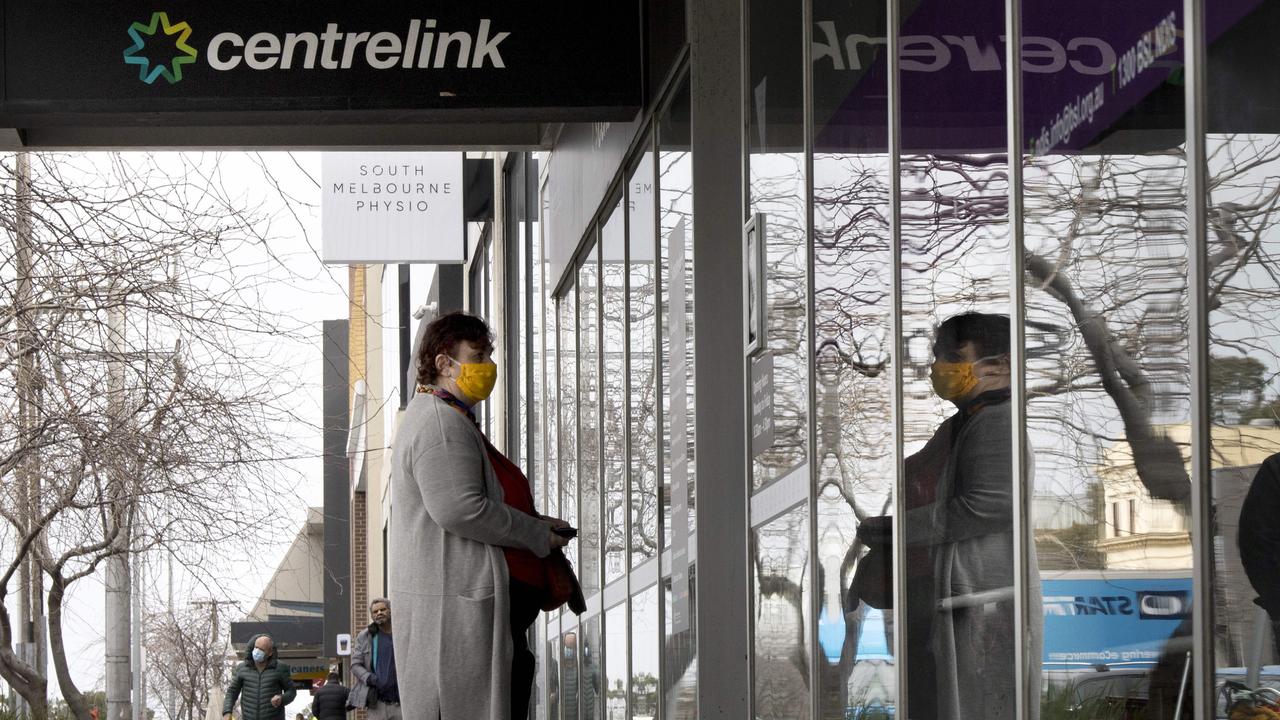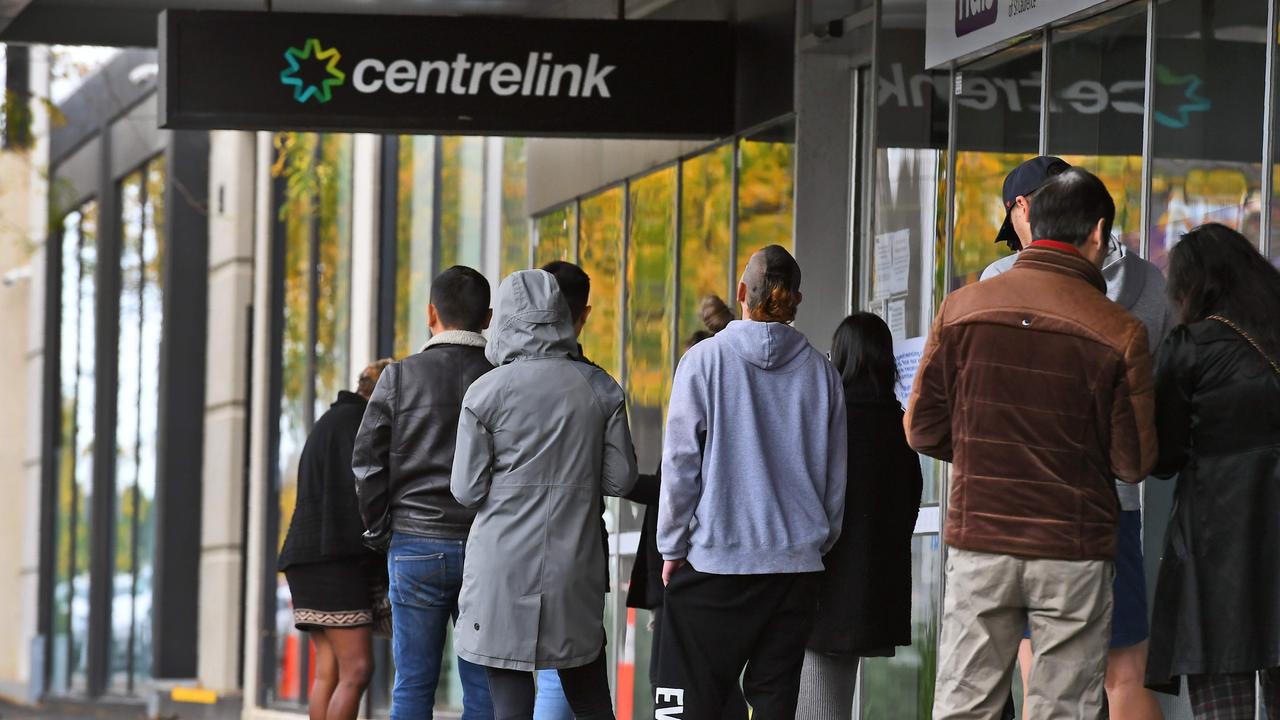LinkedIn reveals how COVID-19 has impacted finances, job confidence in Australia
A new LinkedIn survey reveals how COVID-19 has impacted our finances and job confidence – with younger Aussies seeing a huge dip in financial stability.
A new LinkedIn report has revealed the impact the coronavirus pandemic has had on our finances and confidence levels about career and job prospects, from Millennials to Baby Boomers and the generations in between.
Millennials – those in their 20s and 30s born between 1981 and 1996 – have been most affected financially, the LinkedIn Workforce Confidence Index report released today revealed.
This group had the highest reductions to their income, however their confidence in future job prospects has come out on top, the report’s data showed.
Confidence in the index report is measured as confidence in the ability to get and hold onto a job, about finances in the next six months and in the ability to progress in a career.
While Millennials are most confident about finding a new job compared to other generations, they are also the most anxious about their finances, the report revealed.
RELATED: Millennial aspirations ‘above reality’

RELATED: Millennials ‘lack resilience’, need ‘hugging’
Baby Boomers, on the other hand, are polling nearly half as confident as Millennials about job prospects and finances during the pandemic crisis.
This older generation – born between 1946 and 1964 – had the greatest losses through their retirement funds, with more than half seeing their nest egg dwindle during the pandemic.
With the market in a competitive state, older generations aren’t confident about their ability to secure work, the report revealed.
The jobs market is now twice as competitive, with LinkedIn data showing that job applications have risen from around 20 to 40 applications per job on average,” LinkedIn Australia and New Zealand managing director Matt Tindale said.
“Baby Boomers have been the generation most concerned about their career progression, suggesting that promotions and opportunities to thrive may be more difficult for this age group to secure in the competitive jobs landscape.”
RELATED: Odd millennial spending habit post-COVID

Gen Z – the newest generation to be named born between 1996 and 2015 – has seen the most widespread reduction in working, with nearly half working less than they used to. They’re also struggling the most when it comes to their career prospects.
“This impact is amplified by increasing worry regarding career progression, with confidence in the likelihood of securing new opportunities declining significantly in the last month,” Mr Tindale said.
And Gen X – those aged between 40 and 55 born between 1965 and 1980 – is the age group even more nervous about their finances than Millennials, the report revealed.
“Gen X are the least confident about their ability to improve their financial position, and are most likely to have cut back or stopped saving toward a major life purchase, such as a house or car. This shows that life-building plans might have been largely put on hold for this generation due to the financial impact of the pandemic,” Mr Tindale said.
RELATED: COVID has made Millennials budget savvy

Mr Tindale said the data shows the pandemic is having a multigenerational impact across the board – even though the health crisis is impacting each group in different ways.
“Whether it’s Gen X being unable to buy the home they’ve aspired towards, Millennials struggling to make ends meet on reduced wages or Baby Boomers witnessing losses to their retirement funds, each generation is struggling with their own issues,” he said.
“Whilst Millennials are the most confident generation in terms of job prospects, they are also the most impacted in terms of income reduction during the pandemic. This has affected their overall financial confidence, which has stagnated in recent months,” Mr Tindale said.

Individual confidence in Aussies has continued to drop, driven by outlook on job security and strongly reflected in micro and small-to-medium business workers, the LinkedIn report reveals.
The largest concerns when it comes to working remotely are working longer hours and feeling more lonely or socially isolated.
More than 40 per cent of Australians surveyed admit that working longer hours is a concern of working remotely during the pandemic. This was closely followed by feeling lonely and socially isolated when remote working as the pandemic has worn on.

MILLENNIALS ‘ASHAMED’ OF FINANCES
Research by Australian fintech company Groupee found that almost half – 46 per cent – of 1000 Millennials surveyed are severely affected by COVID-19 in terms of their finances.
The survey also revealed that despite the financial impact the virus has had on them, more than a third of this generation surveyed is too ashamed to curb their lavish lifestyle – such as brunching – in front of friends from fear of losing face.
Groupee revealed that 38 per cent of their survey participants, aged between 23-38 years old, were too embarrassed to let their friends know money is tight.

“For a generation already facing high levels of mental health issues, it’s concerning that COVID has put a new blanket of anxiety on Millennials. Almost half of Millennials are too proud to tell their friends they are in financial hardship,” Jarred Baker, founder and CEO of Groupee, previously said.
“Millennials are often criticised for living beyond their means as they chase the perfect life and share it on social media, but with 46 per cent now financially disadvantaged, the veneer of wealth and social status is starting to crumble down for many.”
Media maven Ita Buttrose previously said Millennials in the Australian workforce “lack resilience” and need “hugging” for constant reassurance and also “need to be thanked”.
The ABC Chair, who said resilience was desirable and seemed to be in “short supply” worldwide, made the comments to the Australia-United Kingdom Chamber of Commerce in London in July.



